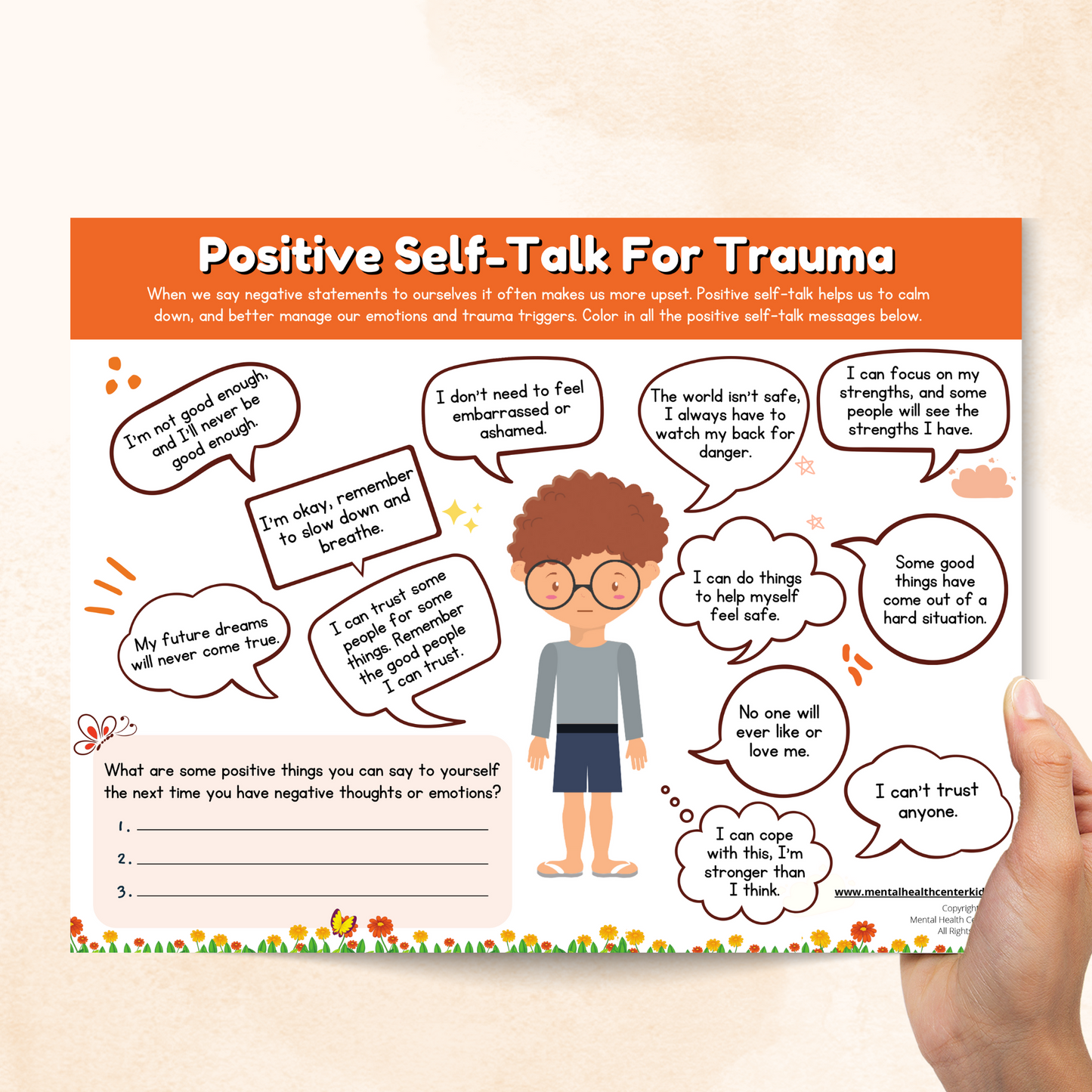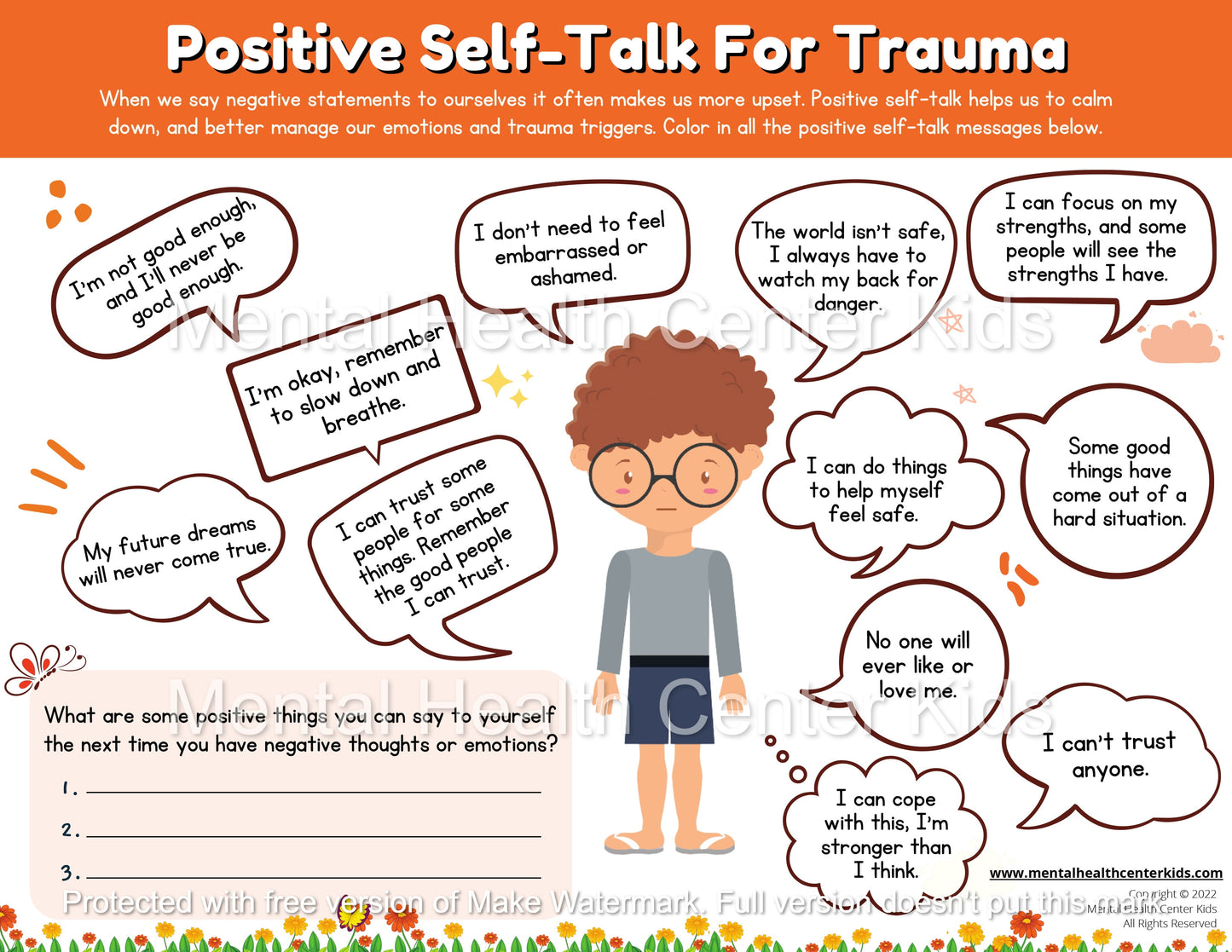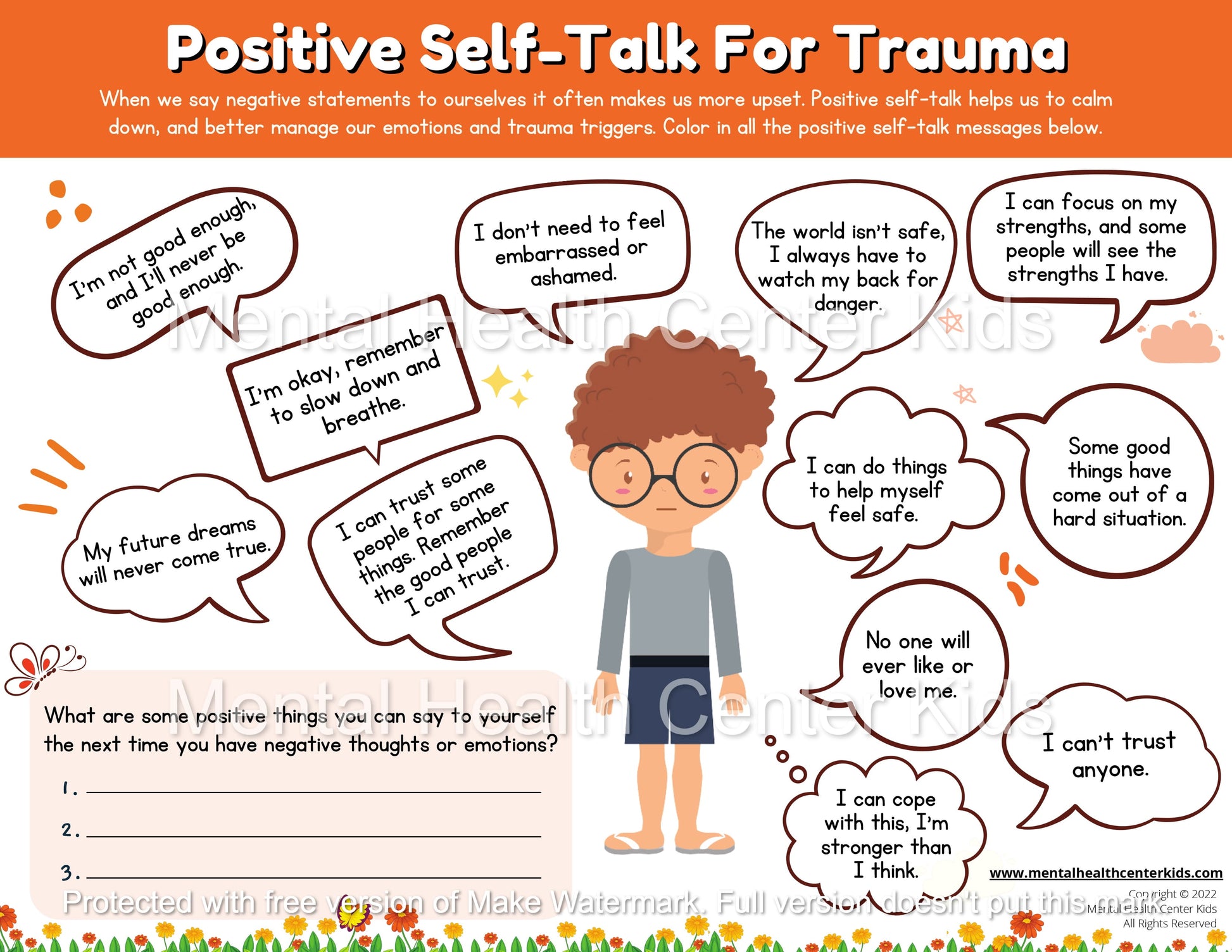Positive Self-Talk for Trauma



Positive self-talk for trauma involves transforming self-critical thoughts into compassionate or encouraging ones to promote healing and build inner strength. This practice allows clients to shift their perspectives and focus on their strengths, even in the aftermath of difficult experiences. However, this process can be difficult, as trauma often triggers self-doubt.
The Positive Self-Talk for Trauma worksheet is a therapeutic tool that guides clients in reframing negative thoughts. It features thought bubbles with different statements, and clients can color in the ones that include positive affirmations. Additionally, blank spaces below the thought bubbles allow clients to write down their own positive thoughts.
Using this worksheet can help kids and teens feel calmer and more in control of their emotions. We recommend placing the worksheet somewhere visible or decorating their rooms with positive quotes to stay hopeful.
Adults can support children by praising their efforts and reassuring them that they are not alone. They can also make the process enjoyable by creating a “positivity board” where kids can add kind words or pictures.
*This item is an instant digital download. A link to download your files will be emailed to you once payment is confirmed.
Want more resources like this? Check out our full catalog of trauma worksheets and handouts.
References:
- Hutchison, N. P., Thomas, E. F., & Takarangi, M. K. (2024). The nature of shared traumatic experiences: When, how, and how often do we share trauma with others? Psychological Reports. https://doi.org/10.1177/00332941241301357
- Kross, E., Bruehlman-Senecal, E., Park, J., Burson, A., Dougherty, A., Shablack, H., Bremner, R., Moser, J., & Ayduk, O. (2014). Self-talk as a regulatory mechanism: How you do it matters. Journal of Personality and Social Psychology, 106(2), 304-324. https://doi.org/10.1037/a0035173
- Tong, J., Simpson, K., Alvarez‐Jimenez, M., & Bendall, S. (2018). Talking about trauma in therapy: Perspectives from young people with post‐traumatic stress symptoms and first episode psychosis. Early Intervention in Psychiatry, 13(5), 1236-1244. https://doi.org/10.1111/eip.12761
- Instant digital download
- File: Fillable PDF
- Size: 8.5" x 11"




